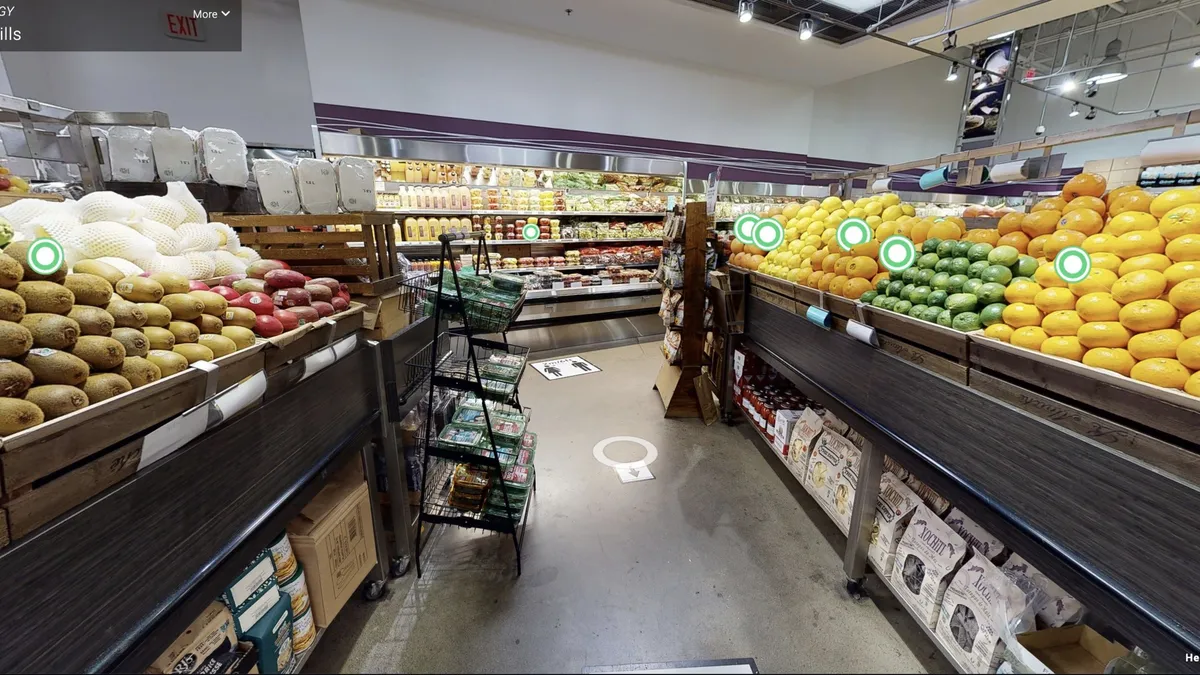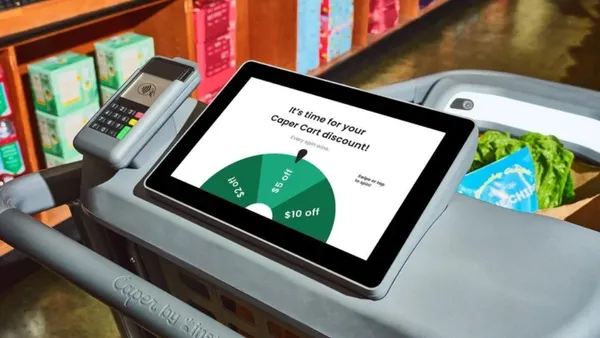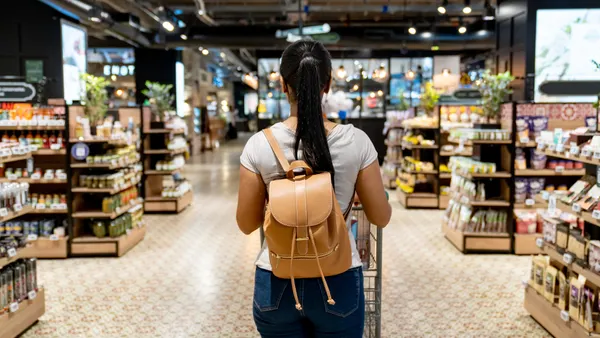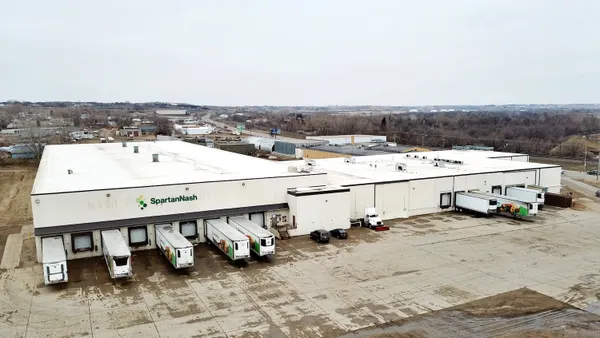Dive Brief:
- Grocery delivery service Inabuggy launched the first 3D virtual shopping experience in Canada on Thursday, enabling customers to "walk" the aisles of upscale grocery McEwan Fine Foods in the Don Mills neighborhood of Toronto.
- Shoppers can access the 3D experience through the Inabuggy app or website, where each aisle has several shortcuts to find exact products from a list of available options. The 3D visualization includes an aerial view of the store and a ruler function that allows viewers to measure individual items.
- The 3D virtual rollout comes as officials in Toronto’s province of Ontario consider another COVID-19 lockdown amid an uptick in new infections, reports Canadian news outlet CBC.
Dive Insight:
With fewer customers walking the actual aisles, an online replica of the store is a way for grocers to highlight new brands or products that might otherwise go unnoticed to shoppers using a search function on a website. For shoppers who miss wandering the store to find inspiration for their evening meal as coronavirus "cooking fatigue" sets in, the 3D portal provides a more immersive e-grocery experience.
Customers may be drawn to the portal simply out of curiosity, but whether it turns out to be just a fleeting novelty will depend on the ease of the 3D shopping experience compared to traditional online shopping. Some retailers have taken the immersive option a step further, with Walmart, in particular, having made immense investments in the space. In 2018, Walmart filed for a patent to bring at-home shoppers equipped with a VR headset and sensory gloves into a virtual store, which marked a push for its online pickup and delivery services well before the flood of interest in e-grocery in 2020. The big-box chain also launched a 3D version of its store on its online shopping platform in 2018 — no VR gear required.
Third-party virtual reality technology companies have been taking advantage of grocers’ new interest in reducing in-store traffic while retaining consumers during the pandemic. One such company, LifeStyles in 360, has partnered with Whole Foods Market and individual pharmacies in Central Florida to let shoppers virtually walk through the stores via VR goggles. Stop & Shop has invested in San Francisco startup Robomart, developer of an autonomous mini grocery store on wheels where consumers can hail a robot like they would an Uber, grab what they need and then check out automatically with the robot’s computer vision technology.
These technologies also tackle one of the potential issues with Walmart’s and McEwan Fine Foods’ augmented reality options, which is the lack of visuals of the actual produce and fresh meat and dairy that shoppers add to their cart.













